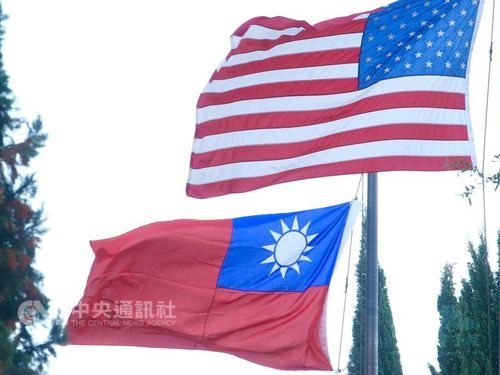
Washington, Dec. 9 (CNA) A conference agreement version of the National Defense Authorization Act (NDAA) for fiscal 2020 suggests the U.S. government should study the feasibility of forming a U.S.-Taiwan working group to coordinate responses to cybersecurity issues, among other recommendations designed to enhance defense and security cooperation between the two countries.
A review of the bill, released by the U.S. Congress on Monday, indicates that issues concerning Taiwan were mentioned in sections 1260B, 1260C and 1260D, touching on cybersecurity activities with Taiwan; a review and report related to the Taiwan Relations Act (TRA); and enhancing the U.S.-Taiwan defense relationship.
Section 1260B of the bill stipulates that the U.S. Secretary of Defense shall submit to the Congressional defense committees a report on the feasibility of a "high-level, interagency United States-Taiwan working group for coordinating responses to emerging issues related to cybersecurity."
Section 1260C asks the Secretary of Defense to review Chinese coercion toward Taiwan; cross-strait military balance; and to make sure the future of Taiwan will "continue to be determined by peaceful means."
Meanwhile, section 1260D asks the Secretary of Defense to report to the Congress regarding guidelines concerning the exchange of senior military officials between Taiwan and the U.S. and to ensure the U.S. continues to provide weapon systems to meet Taiwan's defensive needs under the TRA.
The bill also reiterated that Taiwan is a "vital partner" of the U.S and critical to a free and open Indo-Pacific region, while stressing that the TRA and "Six Assurances" are the cornerstone of bilateral relations.
The TRA was passed by the U.S. Congress and promulgated by then-President Jimmy Carter on April 10, 1979, months after the U.S. switched diplomatic recognition from Taipei to Beijing on Jan. 1 in the same year. It provides the legal basis for unofficial relations between the U.S. and Taiwan, and enshrines the U.S. commitment to assist Taiwan in maintaining its self-defense capability.
The Six Assurances were given by former U.S. President Ronald Reagan to Taiwan in 1982 and include pledges not to set a date for ending arms sales to Taiwan, not to hold prior consultations with China regarding arms sales to Taiwan, and not to play a mediation role between Taiwan and China.
They also include assurances that the U.S. will not revise the TRA or pressure Taiwan to enter into negotiations with China.
The conference agreement version of the NDAA 2020 was produced after a committee made up of U.S. House and Senate members worked out differences between the House and Senate versions of the act to come up with a single version of the bill before returning it to both the House and Senate for approval.
It will then be sent to the U.S. president for final approval, who has 10 days to sign it into law or veto it.
The Senate passed its version of the NDAA for fiscal 2020 on June 27, before the House did so on July 12.